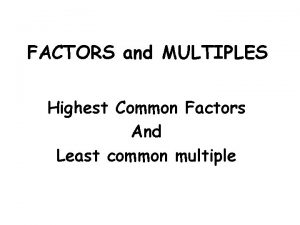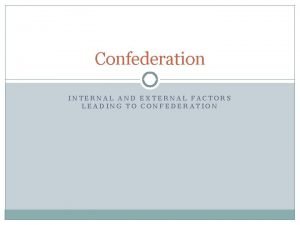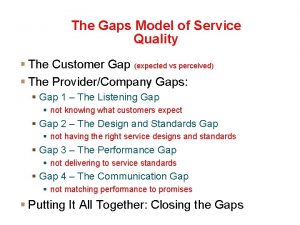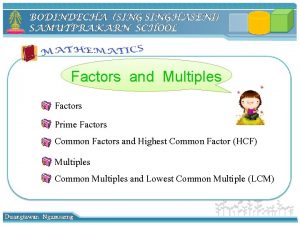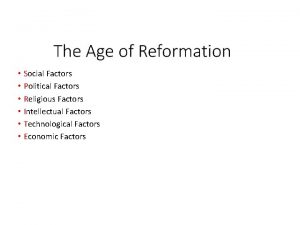Divorce Factors Leading to Divorce The most common










- Slides: 10

Divorce

Factors Leading to Divorce • The most common cause of divorce is selfishness. • It may be selfishness with money. • It may be that a spouse is too selfish to have children, too selfish to care, to nurture a spouse • Too selfish to apologize

Factors Leading to Divorce • One spouse dominating the other • Not recognizing the needs of spouse • Lack of appreciation for contribution to the marriage • Other factors of divorce may be changing value system, physical and emotional abuse, religious differences or alcohol/substance abuse.

Personal Problems Associated With Divorce. • No one ever escapes from a divorce unscathed. • Hopes and dreams are replaced with feelings of rejection, security, and a loss of self-esteem. • The 4 major arguments against divorce are: 1. Divorce hurts you. 2. Divorce hurts those around you. 3. Single life is not what it is cracked up to be. 4. Financial and emotional costs are high

More Personal Problems Associated With Divorce. • Divorce people have more illness, more premature deaths, higher suicide rates and more accidents than those who are married. • When we divorce we learn to doubt that any relationship can be permanent. • Children fear that they caused the divorce and they feel rejected and alone.

Coping With Divorce • Dealing with divorce is similar to coping with a death. • A person goes through three stages. 1. Shock and numbness – one blocks out reality, denial. 2. Reality – deep sadness and great sense of loss, depression and anxiety. 3. Recovery – they give up their hopes and plans they had with the other person.

Divorce will not have the same effect on all children. The consequences vary, depending on: • children's ages, • family characteristics, • level of family conflict, • parent-child relationships, • socio-economic level, • mental well-being of each parent, • maternal employment, • and amount of social support. • Some divorces bring relief to families while others leave the family devastated.

Effects of Divorce by Age 2 -5 Theme Abandonment Symptoms Sleep disturbances What to do Explain custodial parent will return. 5 -9 Displaced, Grief School difficulties Discuss fears, Contact with non-custodial parent. Spying, fight with parents. Patience, love 9 -12 Acting out 13+ Relationship Communication, failure Independence, promiscuous encourage

Adjusting to Divorce Parents can help children adjust to divorce by: 1. 2. 3. 4. decreasing conflict, relationship with parents, economic stability, and consistent visitation.

The Major Challenges of Single Parenting Include: 1. 2. 3. Day Care Issues Personal time Economic Stability


